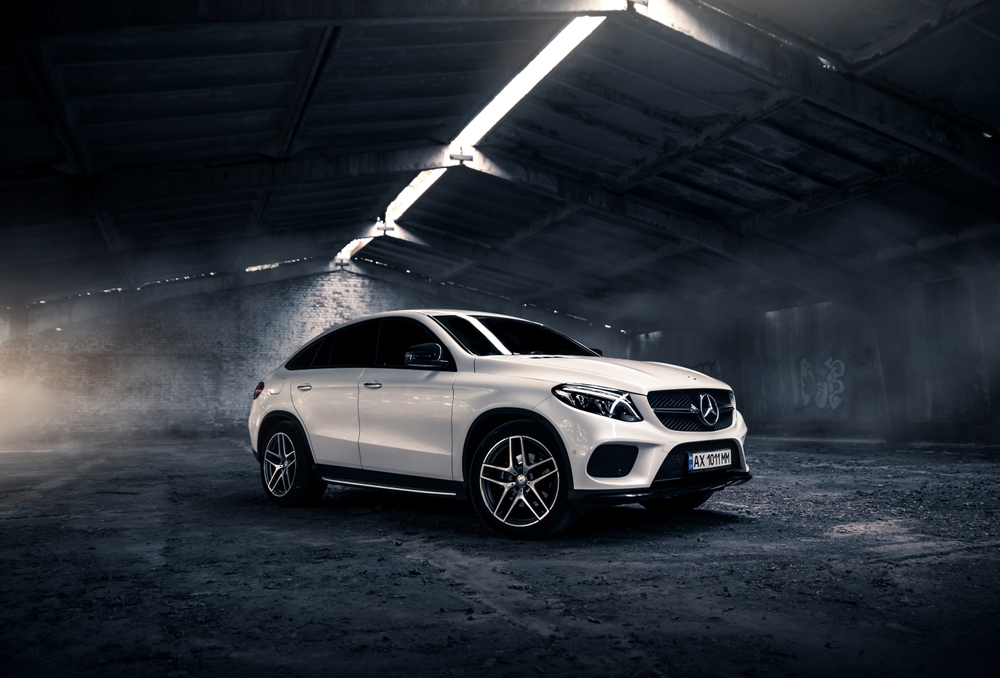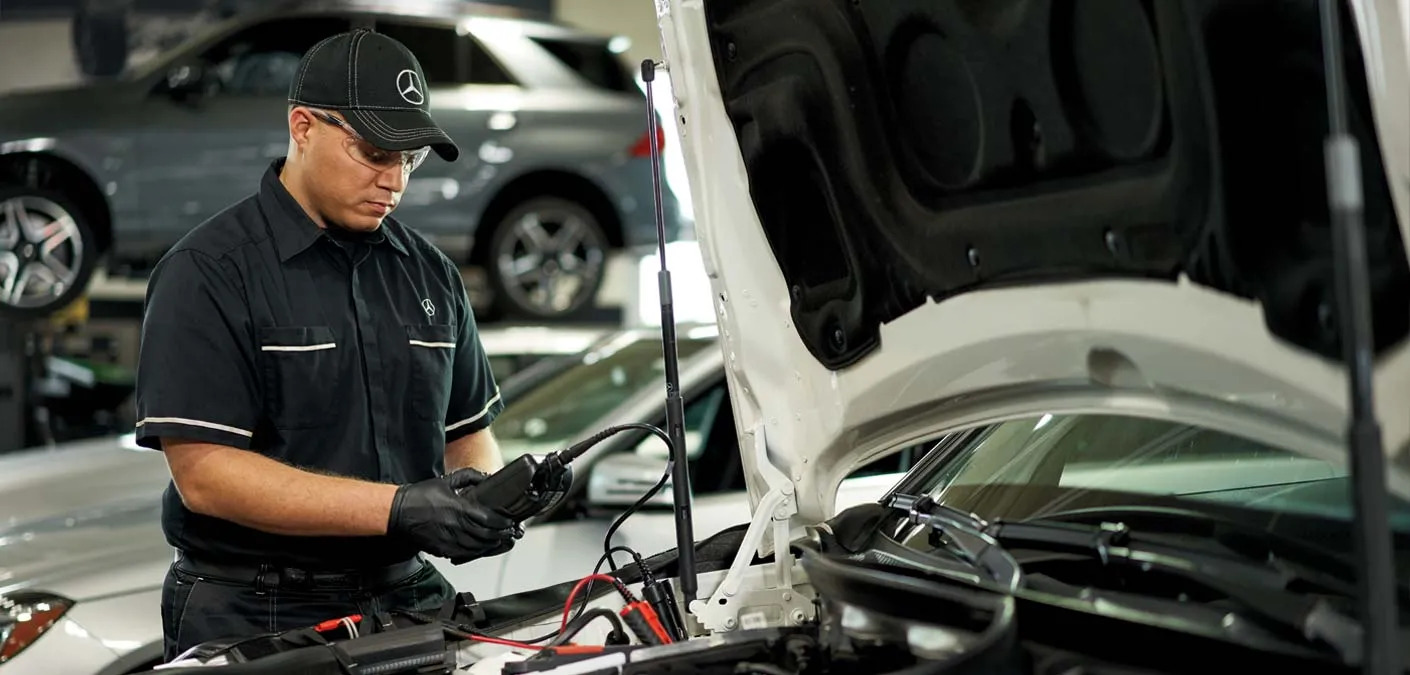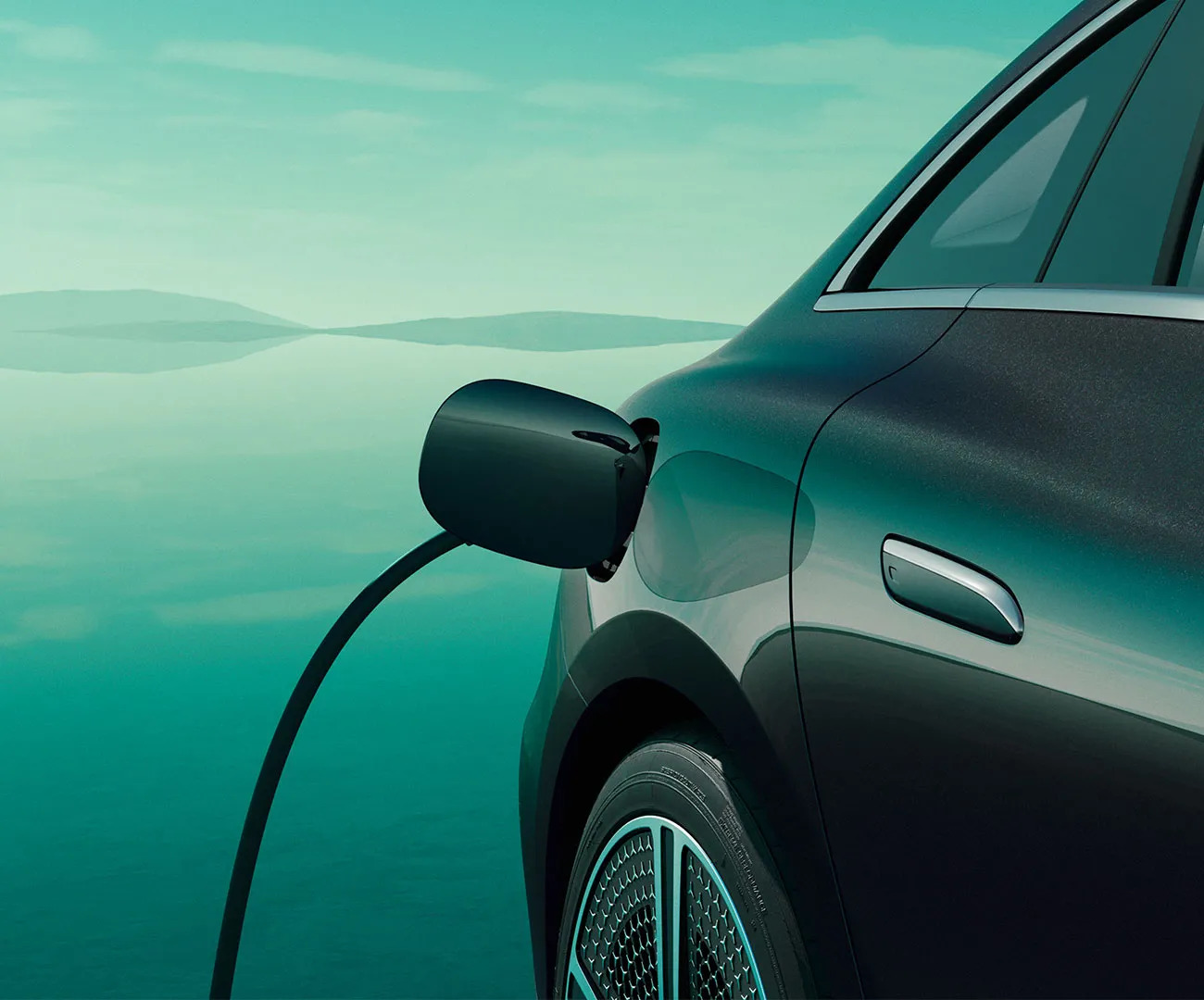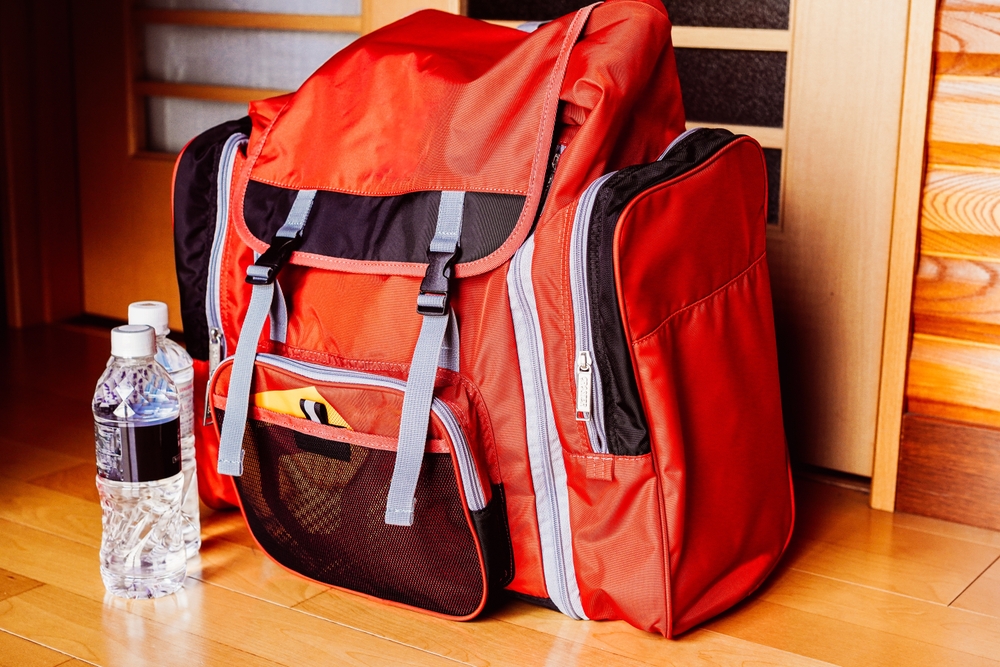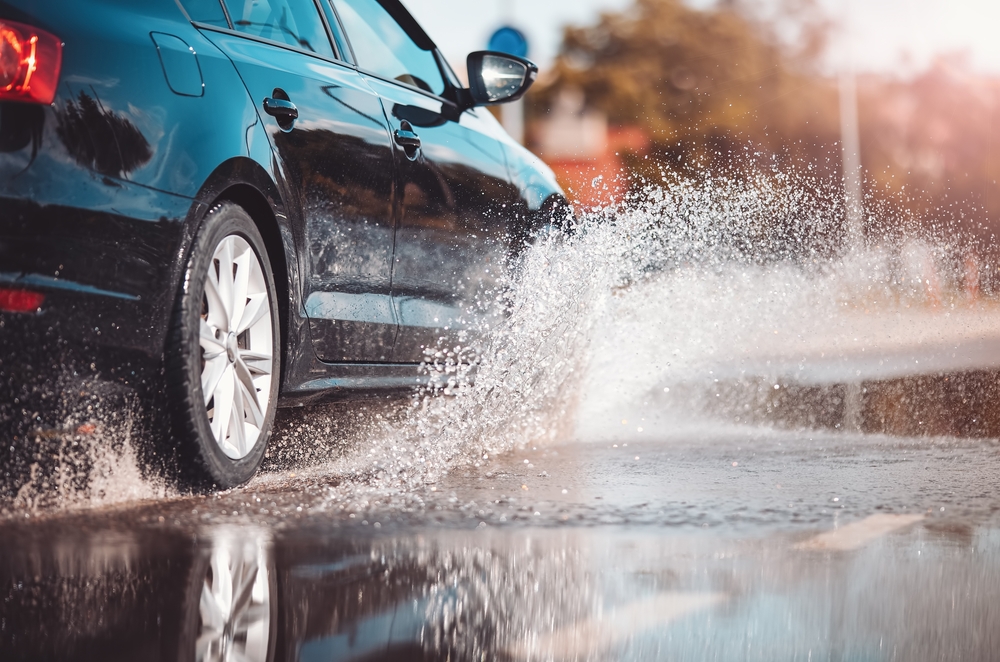Hurricane season in Florida—running from June through November—means more than just tracking weather forecasts and stocking up on bottled water. For Mercedes-Benz owners in Daytona Beach and along the coast, it means ensuring your vehicle is genuinely ready to handle whatever nature throws your way. Your Mercedes isn’t just a car; it’s a sophisticated machine with advanced electronics, precise engineering, and systems that demand specific attention before a storm rolls in. A weak battery or overlooked maintenance issue can leave you stranded when you need reliable transportation most—whether you’re evacuating to Orlando, securing your home, or simply getting your family to safety. At Daytona Mercedes Service, our factory-trained technicians understand exactly what your vehicle needs to weather Florida’s most intense storms, and we’re here to help you prepare with confidence.
Why Your Mercedes-Benz Needs Specialized Hurricane Preparation
You might think hurricane prep for any vehicle is basically the same—fill the tank, check the tires, and you’re good to go. But your Mercedes-Benz operates on an entirely different level than standard vehicles, which means it requires a more thoughtful approach. The sophisticated electronics that power everything from your COMAND® infotainment system to your advanced driver-assistance features rely heavily on consistent, robust battery power. When voltage drops even slightly, these systems can behave unpredictably or fail altogether, leaving you without navigation, emergency communication, or critical safety features exactly when you need them most.
Florida’s unique climate makes this especially challenging. The combination of intense heat—Daytona Beach regularly hits 90°F during summer months—and high humidity accelerates battery degradation faster than almost anywhere else in the country. During hurricane season, when you might be sitting in evacuation traffic on I-95 for hours with every electrical system running, that weakened battery can give out without warning. Unlike a basic sedan, your Mercedes depends on stable power to manage everything from adaptive suspension to active safety systems, making battery health absolutely critical for storm readiness.
Step 1: Battery Reliability for Florida Storms
Your Mercedes-Benz battery does far more than just start the engine. It’s the central power source for an incredibly complex network of electronic control units, sensors, and modules that manage everything from your transmission’s shifting patterns to your brake system’s emergency response. When a hurricane threatens, you need to know your battery can handle extended idling in traffic, continuous operation of lights and climate control, and repeated start-stop cycles if you’re navigating flooded streets or congested evacuation routes heading west toward safer areas.
Most Mercedes-Benz batteries last between two to five years in Florida’s harsh conditions, but that timeline shortens considerably if your vehicle frequently makes short trips around Daytona Beach’s beachside neighborhoods or quick runs to Port Orange. Heat accelerates the chemical reactions inside the battery that cause degradation, while the constant draw from your vehicle’s electronics drains it faster than older, simpler vehicles. You might not notice any symptoms until the battery is already critically weak, which is why professional testing is essential rather than guessing based on how the car feels when you start it.
A professional battery test at Daytona Mercedes Service goes far beyond what a basic parts-store scanner can tell you. Our technicians use Mercedes-Benz diagnostic equipment that measures not just the battery’s current charge, but its cold cranking amps, reserve capacity, and internal resistance—all critical factors that determine whether it can reliably perform during a storm emergency. We also inspect the battery terminals and cables for corrosion, which is rampant in coastal areas due to salt air, and check the charging system to ensure your alternator is properly maintaining the battery during operation. This comprehensive evaluation gives you real confidence rather than just hoping everything works when you turn the key during an evacuation.
Is Your Mercedes-Benz Battery Hurricane-Ready? Get a Complimentary Check
Waiting until a tropical storm warning is issued to discover your battery is failing is a recipe for panic and scrambling for solutions when service centers are overwhelmed and parts are scarce. That’s exactly why we offer a complimentary battery check for all Mercedes-Benz owners in the Daytona Beach area—because knowing your vehicle’s status before storm season intensifies gives you time to address any issues calmly and thoroughly.
Our factory-trained technicians will test your battery’s health using Mercedes-specific diagnostic tools, providing you with clear, honest information about its condition and expected lifespan. If your battery is still strong, you get peace of mind knowing you’re prepared. If it’s showing signs of weakness, you have time to replace it with Genuine Mercedes-Benz parts designed specifically for your model’s electrical demands—not a generic aftermarket battery that might not properly support your vehicle’s sophisticated systems. This proactive approach means you’re never caught off guard, and you can focus on other storm preparations knowing your vehicle is genuinely ready.
Special Considerations for Mercedes-EQ (EV) Models
If you’re driving a Mercedes-EQ electric vehicle, hurricane preparation involves some unique considerations beyond traditional combustion-engine models. Your EV’s high-voltage battery system is remarkably robust and well-protected against water intrusion, but there are specific protocols you should follow to ensure your vehicle remains safe and functional during severe weather events.
First and most importantly, never attempt to charge your Mercedes-EQ during an active storm with lightning in the area. While the charging equipment and vehicle have extensive safety features, lightning strikes can potentially damage both the vehicle’s electrical system and your home’s electrical infrastructure. If a hurricane warning is issued, charge your vehicle to maximum capacity beforehand, then disconnect it completely from any charging equipment. A fully charged Mercedes-EQ typically provides well over 200 miles of range, which is more than sufficient to evacuate from coastal areas to inland safe zones if needed.
Mercedes-EQ vehicles are engineered to handle water exposure far better than you might expect—they’re tested to safely wade through water up to certain depths without damage to the battery or electrical systems. However, if your vehicle is exposed to flooding during a storm, do not attempt to drive it or charge it until it’s been thoroughly inspected by certified Mercedes-Benz EV service technicians. Saltwater flooding, which is common along Daytona Beach’s coastal areas, can cause significant corrosion damage to electrical components that isn’t immediately visible.
Step 2: Assembling Your Mercedes-Benz Emergency Kit
A thoughtfully assembled emergency kit transforms your Mercedes-Benz from just a vehicle into a genuine lifeline during a hurricane. While many drivers keep basic items like jumper cables and a flashlight, a truly comprehensive kit addresses the specific scenarios you’re likely to face during Florida’s most severe storms—extended power outages, flooded roads, evacuation delays, and limited access to services.
Start with the fundamentals that apply to any emergency situation. You should keep bottled water (at least one gallon per person), non-perishable snacks like protein bars or trail mix, a first-aid kit, flashlights with extra batteries, and a portable phone charger. For Mercedes-Benz owners in Florida, there are additional items that specifically address your vehicle’s capabilities and your region’s challenges. Include a quality tire pressure gauge, since Florida’s temperature swings can significantly affect tire pressure, and properly inflated tires are critical for safe handling on wet roads.
Here’s your complete Mercedes-Benz hurricane emergency kit checklist:
- Water and Food: One gallon of water per person, non-perishable snacks, and if you have pets, food and water for them as well, since evacuation shelters don’t always accommodate animals immediately.
- Medical Supplies: A comprehensive first-aid kit, any prescription medications your family needs (keep at least a three-day supply), and basic over-the-counter medications like pain relievers.
- Communication Tools: A portable phone charger or power bank, emergency contact list printed on paper, and a battery-powered radio to receive weather updates if internet service fails.
- Vehicle-Specific Items: Jumper cables or a portable jump starter, tire pressure gauge, basic tool kit, duct tape for temporary repairs, and work gloves for handling debris safely.
- Safety Equipment: Flashlights with extra batteries, reflective warning triangles if you need to stop on the roadside, a whistle for signaling if you’re trapped, and a small fire extinguisher.
- Documentation: Copies of insurance cards, vehicle registration, driver’s licenses, and important phone numbers stored in a waterproof container.
Store these items in your Mercedes-Benz’s cargo area, organized in waterproof containers or durable bags that won’t shift around during driving. Check your emergency kit at the beginning of each hurricane season—typically around June—to replace expired items, refresh water and food supplies, and ensure batteries still hold charges.
Beyond the Battery: Pre-Storm Vehicle Checklist
While battery health is critically important, comprehensively preparing your Mercedes-Benz for hurricane season means examining several other key systems that contribute to safe, reliable operation during severe weather. Florida’s intense storms test every aspect of your vehicle’s performance, from visibility systems to mechanical components that handle flooded roads and high winds.
Your windshield wipers might seem like a minor detail, but during a hurricane’s torrential downpours—Daytona Beach can receive several inches of rain in just hours during intense storms—worn wiper blades dramatically reduce visibility and increase accident risk. Check your wiper blades for cracks, tears, or areas where they don’t make complete contact with the windshield. Replace them if there’s any doubt about their effectiveness, and verify your windshield washer fluid reservoir is full with a solution designed to cut through road grime and salt spray.
Tire condition deserves equally serious attention. Examine your tires for adequate tread depth—insert a quarter into the tread grooves with Washington’s head facing down, and if you can see the top of his head, your tires are too worn for safe wet-weather driving. Check tire pressure when the tires are cold, typically early morning before you’ve driven anywhere, and inflate them to the specifications listed on the driver’s door jamb. Properly inflated tires with good tread dramatically improve your Mercedes-Benz’s ability to evacuate water from beneath the tire, reducing hydroplaning risk on I-95 or US-1 during heavy rain.
Hurricane Preparedness Comparison
| Preparation Category | Why It Matters for Your Mercedes-Benz | Recommended Action | Ideal Timing |
|---|---|---|---|
| Battery Testing | Powers critical electronics and safety systems during extended evacuations | Professional diagnostic check with Mercedes-specific equipment | Early June, before peak season |
| Wiper Blades | Essential for visibility during torrential Florida downpours | Replace if showing any wear, cracks, or incomplete contact | May-June annually |
| Tire Inspection | Adequate tread prevents hydroplaning on flooded coastal roads | Check tread depth and pressure; replace if below quarter-test depth | Before each storm warning |
| Emergency Kit | Provides essentials if stranded or delayed during evacuation traffic | Stock with water, food, medical supplies, and communication tools | Assemble in June; check monthly |
| Fuel Level | Ensures you can evacuate without searching for operating gas stations | Keep tank above half-full throughout hurricane season | Continuous during June-November |
Don’t Wait for the Warning: Schedule Your Hurricane Prep Service Today
The absolute worst time to discover your Mercedes-Benz needs service is when a hurricane warning is already posted and you’re rushing to evacuate. Service centers become overwhelmed with last-minute requests, parts availability becomes limited, and appointment slots fill immediately. This creates dangerous situations where owners must make difficult choices—evacuate in a vehicle with known issues, or stay in a threatened area hoping to get service completed.
Scheduling your hurricane preparedness service now—well before any storms threaten the Daytona Beach area—gives you genuine peace of mind and eliminates that stressful scramble. Our factory-trained technicians will thoroughly inspect your vehicle’s critical systems, test battery health, examine fluid levels, check tire condition, and address any concerns you have about your Mercedes-Benz’s storm readiness. We’ll provide clear, straightforward recommendations about what needs immediate attention and what can wait, empowering you to make informed decisions about your vehicle’s care rather than feeling pressured during an emergency.
Frequently Asked Questions (FAQ)
Q: How often should I replace my Mercedes-Benz battery in Florida?
A: In Florida’s extreme heat and humidity, Mercedes-Benz batteries typically last two to five years, though this varies based on driving habits and climate exposure. Vehicles primarily used for short trips around Daytona Beach or those parked outdoors may need replacement sooner. Professional testing annually—especially before hurricane season—provides accurate assessment of your specific battery’s condition rather than relying on general guidelines.
Q: Is it safe to charge my Mercedes-EQ electric vehicle during a storm?
A: No, you should never charge your Mercedes-EQ during active storms with lightning present. While the charging system has extensive safety features, lightning strikes can damage both the vehicle and your home’s electrical system. Charge your EV to maximum capacity before a storm warning is issued, then disconnect all charging equipment. A fully charged Mercedes-EQ provides sufficient range for evacuation to inland safe zones.
Q: What is included in a Mercedes-Benz hurricane preparedness inspection?
A: Our comprehensive hurricane prep inspection includes battery testing with Mercedes-specific diagnostics, tire inspection for tread depth and pressure, wiper blade examination, fluid level checks, lighting system verification, and a review of your emergency kit supplies. We also provide specific guidance based on your model’s features and answer any questions about your vehicle’s storm-readiness capabilities.
Q: Where is the safest place to park my car during a hurricane if I don’t have a garage?
A: According to Florida Department of Health, if you don’t have garage access, park away from trees, power lines, and buildings where debris could fall. Choose the highest ground available to avoid flooding, and if possible, position your vehicle facing away from the predicted wind direction. Never park under carports or other structures that could collapse. For valuable vehicles like your Mercedes-Benz, consider pre-arranging covered storage at facilities inland from coastal flood zones.
Q: Will my warranty cover hurricane damage?
A: Mercedes-Benz warranties cover manufacturing defects and mechanical failures, but typically exclude damage from natural disasters like hurricanes, which is considered environmental damage. However, comprehensive auto insurance usually covers storm damage, including flooding, wind damage, and debris impacts. Review your insurance policy before hurricane season starts, and consider adding comprehensive coverage if you don’t already have it. Document your vehicle’s condition before storms for insurance purposes.
Schedule Your Hurricane Prep Service Today
Don’t wait until a storm warning is issued to discover your Mercedes-Benz isn’t ready for Florida’s hurricane season. The factory-trained experts at Daytona Mercedes Service are here to ensure your vehicle is comprehensively prepared, whether you drive a new Mercedes-EQ electric model or a trusted E-Class that’s been serving you reliably for years. We have the right diagnostic equipment, genuine Mercedes-Benz parts, and specialized knowledge to handle every aspect of hurricane preparation efficiently and effectively.
With hurricane season running from June through November and storms capable of forming with little warning, delaying your vehicle’s preparation only creates unnecessary stress and risk when you need reliable transportation most. Our thorough inspection approach identifies exactly what your Mercedes needs—from battery health to tire condition to emergency kit essentials—ensuring you get appropriate service that provides genuine peace of mind rather than just hoping everything works during an evacuation.
Click here to schedule your complimentary battery check and hurricane preparedness inspection today!
Or visit us at 1188 N Tomoka Farms Rd, Daytona Beach, FL 32124, and let our certified technicians ensure your Mercedes-Benz is storm-ready and prepared to protect your family throughout Florida’s challenging hurricane season.

